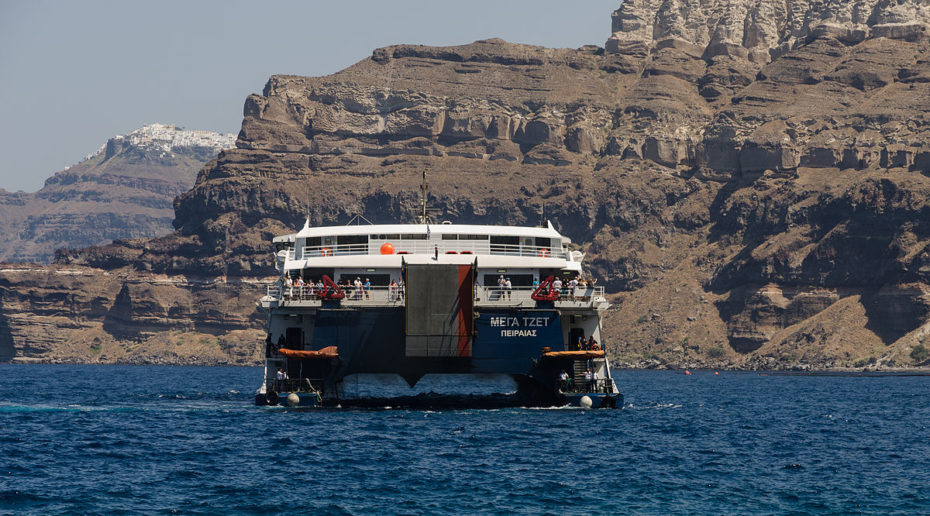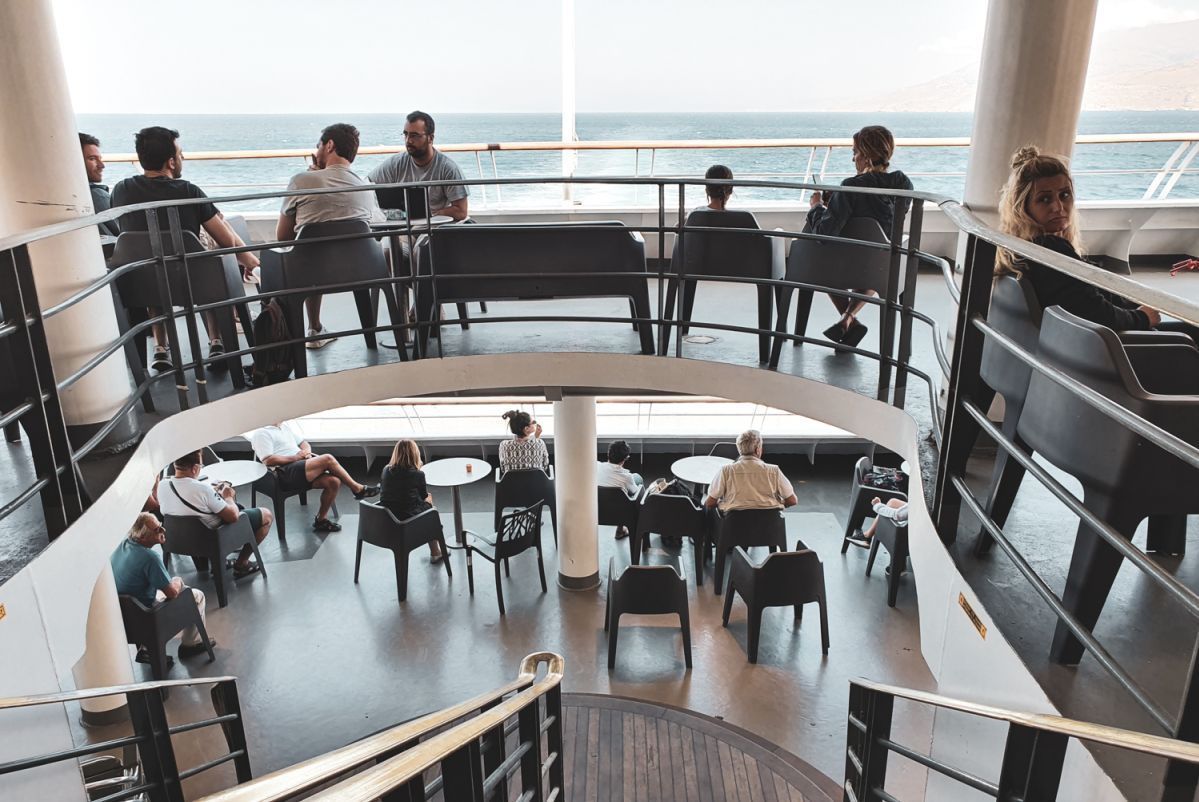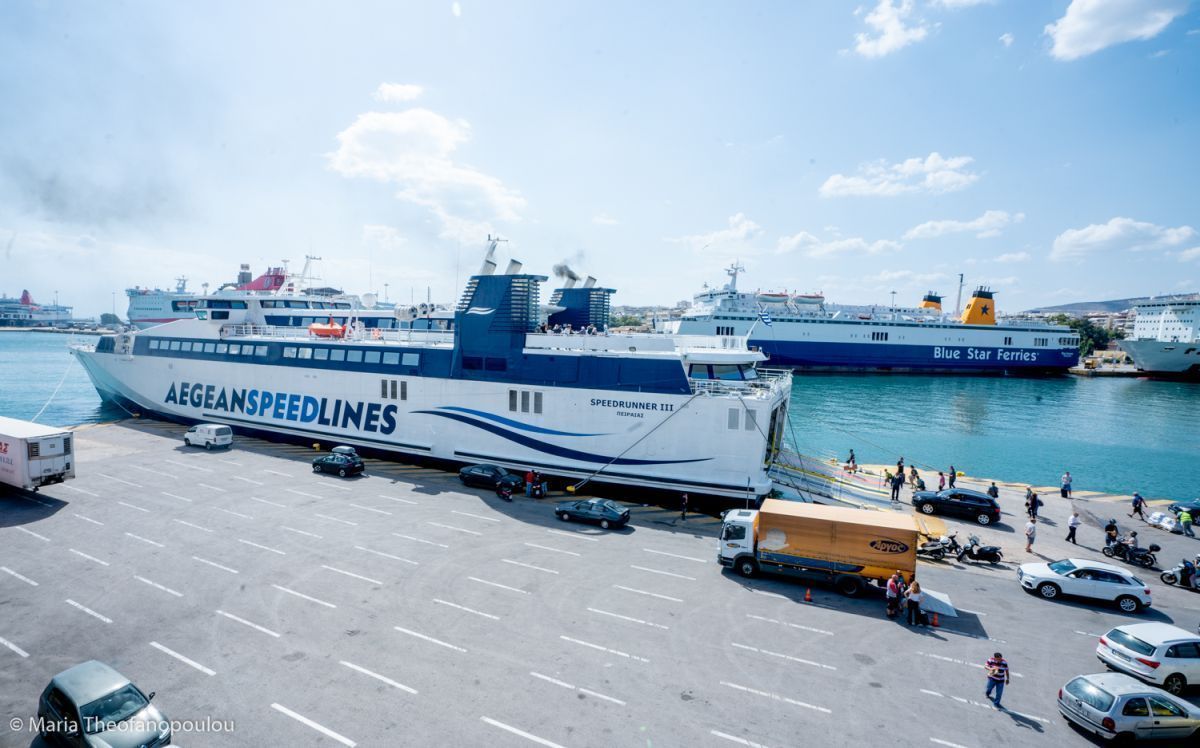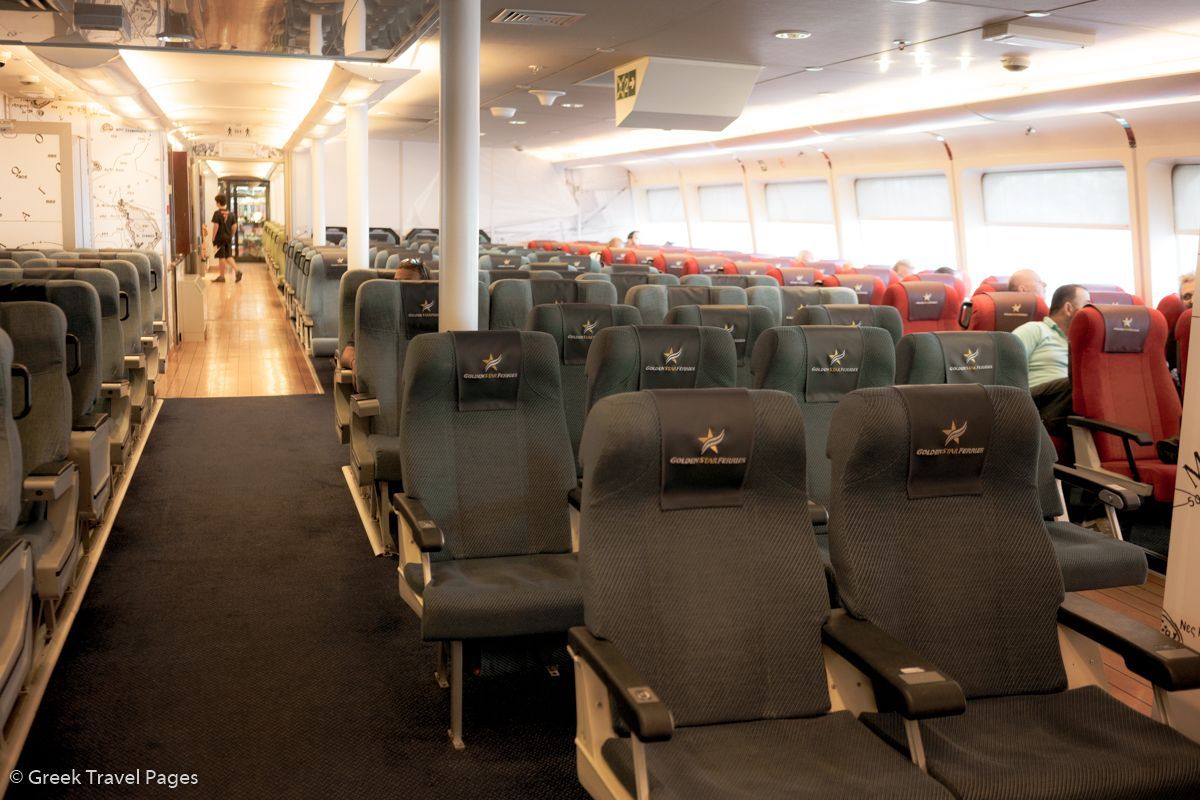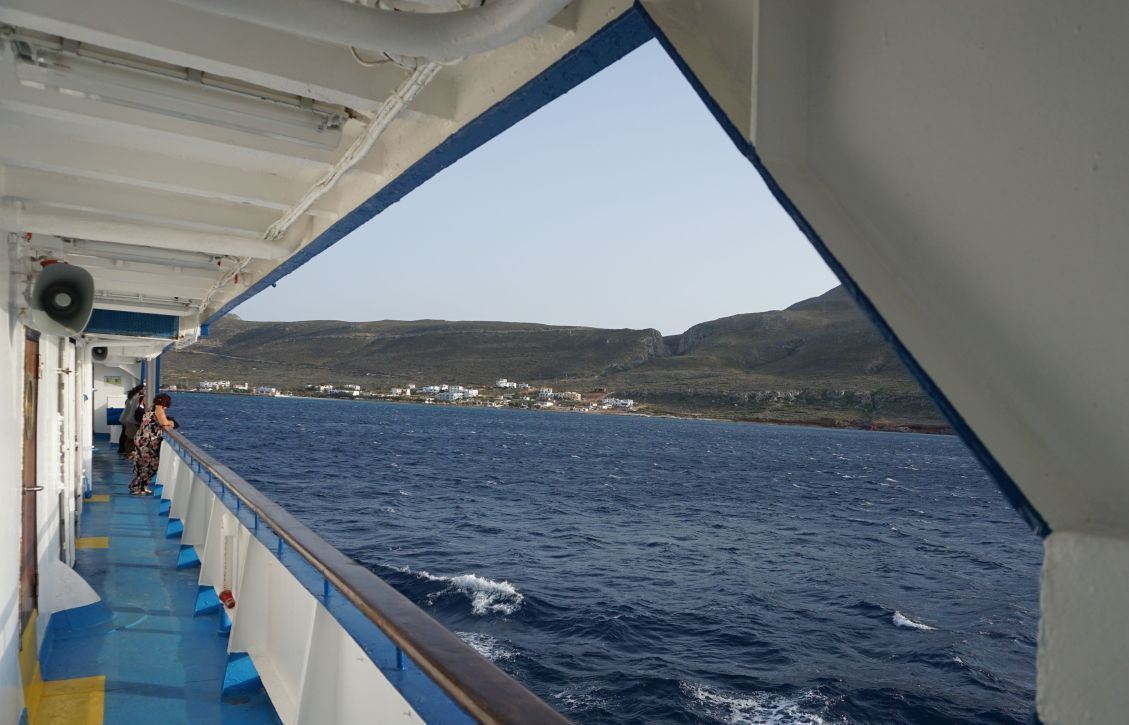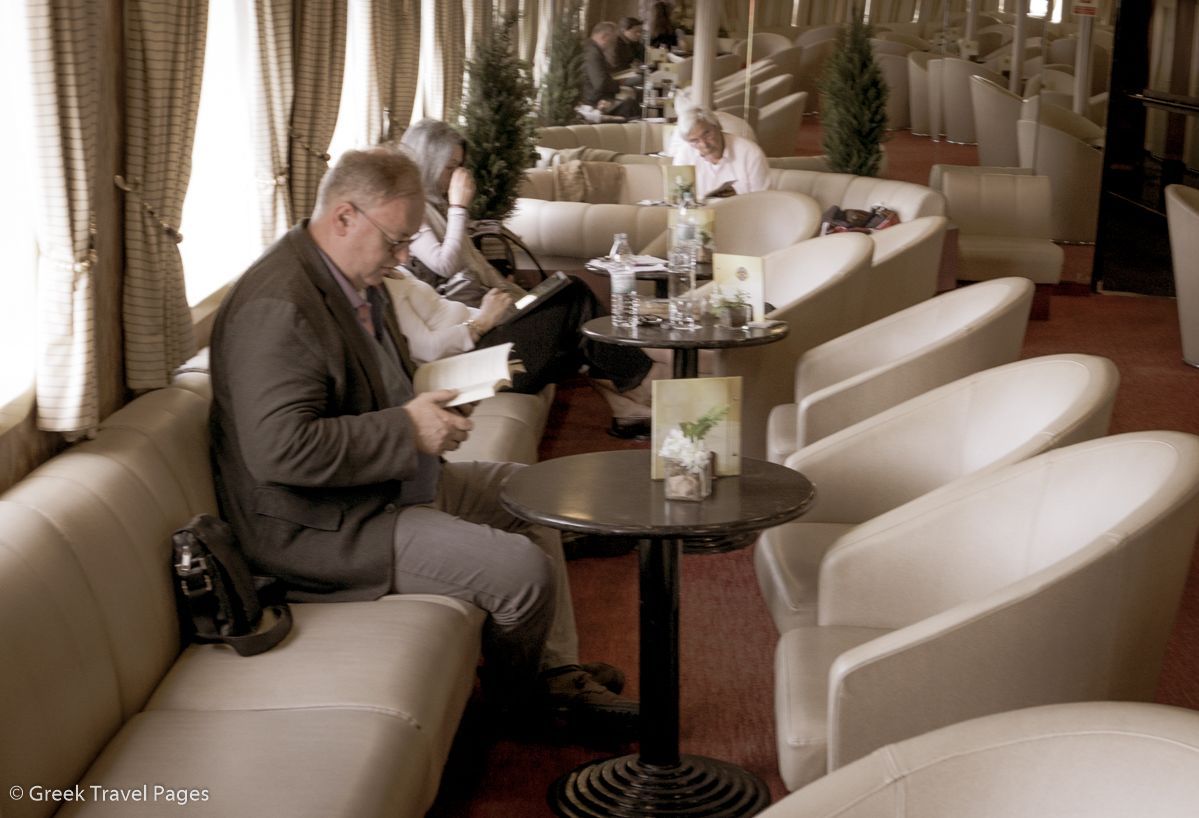A protocol of 21 pages containing safety rules and standards for the seamless operation of coastal shipping vessels in Greece after the gradual lifting of the measures taken to curb the Covid-19 virus was recently made public.
The protocol was planned out by the Greek Maritime Ministry in cooperation with EODY, Greece’s public health organization, and the Greek Shipowners Association for Passenger Ships (SEEN). It has been forwarded to coastal shipping companies for consultation and the submission of proposals on their part.
Restrictions for travel to the Greek islands by ferry and high-speed vessels are still in place. Maritime Minister Yiannis Plakiotakis recently stated that announcements for travel to the islands will be made in the coming days. According to reports, restrictions will most likely be lifted in two phases in May, initially for employees of businesses that have resumed operation and tourism workers. The full lifting of restrictions on ferry travel may possibly take place on June 1. Other sources see the three-day weekend of the Orthodox Holy Spirit holiday (June 6-8) as the most possible period.
Following are a collection of the main points of the plan. It is noted that changes may apply once the consultation process is complete.
Passenger capacity
According to the protocol, when travel by sea in Greece resumes for all, passenger ferries will be allowed to carry 55 percent of their maximum capacity set by current legislation. Ferries that do not have cabins will be allowed to transport 50 percent of their original passenger capacity.
For high-speed vessels, the maximum number of passengers allowed in economy class and in first class will be equal to 50 percent of what current legislation already allows.
Pre-boarding, boarding, and social distancing
Pre-boarding entry screening measures will be applied in order for crews to assess passengers for symptoms or previous exposure to Covid-19 patients.
Prior to boarding a ferry or a high-speed vessel at ports of departure, passengers will be given health questionnaires to fill out, which will then be evaluated by crew members. Passengers that are detected to have been exposed to the virus in the last 14 days leading up to the day of travel, will be denied boarding.
Thermal screening is recommended to be applied to passengers of ships that will operate routes of over three hours. The process will be performed remotely on passengers by use of contactless electronic distance thermometers. If a passenger is detected with a temperature of over 37.8 degrees celsius, boarding will not be allowed. The effectiveness of the thermal screening measure will be reviewed on June 15.
When boarding a ferry or high-speed vessel, all passengers must wear face masks and maintain a minimum distance of 1.5 meters between one another.
Passengers must wear face masks on board at all times and in all spaces of vessels. If passengers do not have face masks or refuse to comply with the measure, boarding will not be allowed.
Seating
Regarding seat allocation for airplane-type seats on ferries, special markings will indicate where a passenger is allowed to sit and where not. A number of seats will have to remain empty in order for passengers to maintain distances between each other.
Cabins
Only one passenger will be allowed per cabin or up to four passengers per family. All cabins should be naturally ventilated where possible (otherwise artificially) and their doors must be left open for at least 3 hours after cleaning and disinfection, before new occupants arrive.
While onboard
Crews must advise passengers to avoid unnecessary movement while on board ferries or high-speed vessels.
All ships will have special markings that will indicate where seating indoors and outdoors is allowed in order for passengers to maintain the proper distance (1.5 meters) from one another.
All gathering points on ferries – reception area, canteens, restaurants, shops and toilets – must also have special floor markings for passengers to maintain the proper distance (1.5 meters) from one another.
For the protection of crew members, the installation of a protective divider at the areas of reception, canteens and restaurants is recommended.
It is also recommended for elevators not to be used. If their use is deemed necessary, only 40 percent of their load capacity is allowed to be used. If ships have escalators then elevators are to be only used by passengers with a disability or by the elderly.
Plan for the prevention and treatment of Covid-19 cases
All ships must have a plan for the prevention and treatment of Covid-19 cases that may arise while at sea. Among other things, plans must include the procedures for isolating all Covid-19 suspected cases. All crew members must be trained as indicated by the World Health Organization (WHO) and in accordance to the EU Healthy Gateway guidelines.
All coastal shipping ships must provide training and guidance to crew members in order for them to identify the signs and symptoms of passengers infected by the coronavirus.
Crew members that may produce symptoms compatible with those of Covid-19 infection should immediately leave their job post and follow indicated instructions.
It should be noted that the maximum number of passengers allowed on passenger ferries and high-speed vessels will be discussed by authorities in early June to form a new framework if necessary, depending on the course of the pandemic in Greece. If Covid-19 cases are low and there is high travel demand then the allowed passenger capacity of vessels will most likely rise after June 15.
Source: Covid-19: New Rules for Ferry Travel in Greece | GTP Headlines

